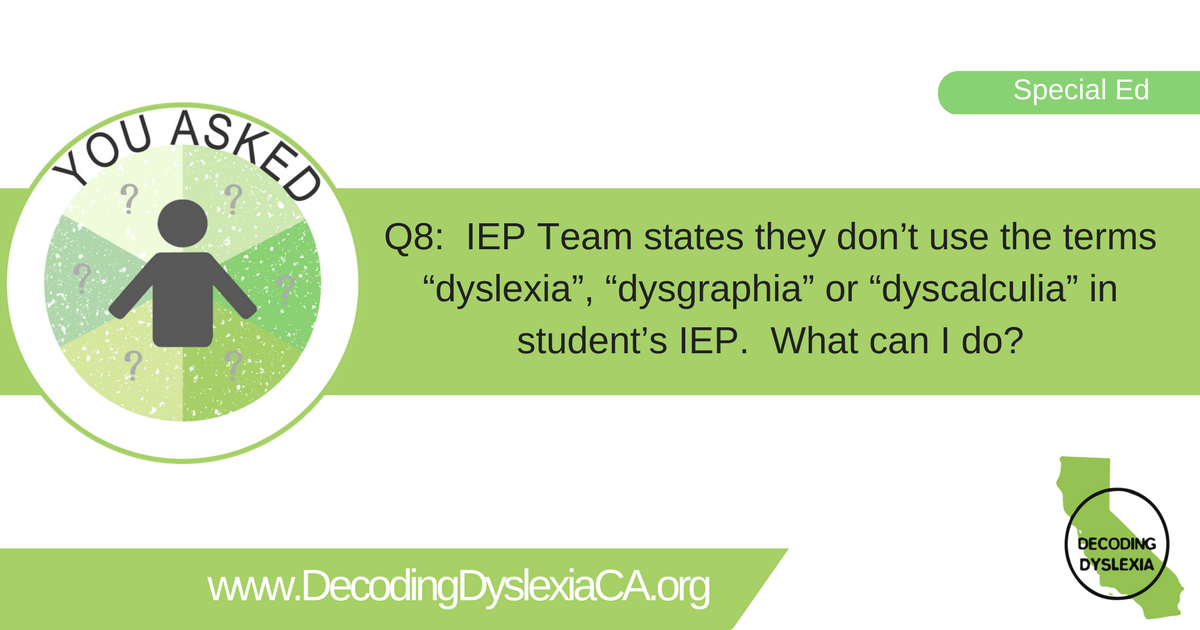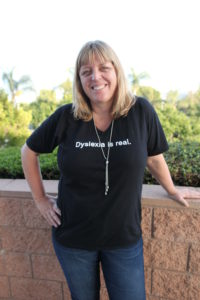Download a PDF version of this You Asked question and answer here.
Q8: IEP Team states they don’t use the terms “dyslexia”, “dysgraphia” or “dyscalculia” in student’s IEP. What can I do?
A: IDEA requires that the IEP Team tailor specially designed instruction to specifically meet the individual needs of the student. As Specific Learning Disability is an umbrella term, the IEP Team needs to carefully document all areas of deficits. If the student exhibits characteristics of dyslexia, dysgraphia, or dyscalculia it is important that these areas of need are specified in the IEP.
The U.S. Department of Education (USDOE) encourages States to review their policies, procedures and practices to ensure that they do not prohibit the use of the terms dyslexia, dyscalculia, or dysgraphia in evaluations, eligibility, and IEP documents. Finally, in ensuring the provision of Free and Appropriate Public Education, USDOE stressed the importance of addressing the unique educational needs of children with specific learning disabilities resulting from dyslexia, dyscalculia, or dysgraphia during IEP meetings and other meetings with parents under IDEA (Source: OSERS Dear Colleague Letter October 23rd, 2015). To download a complete copy of this letter, click HERE.
In addition, under the California Education Code Section 56334, deficits in phonological processing need to be identified as part of special education eligibility requirements. A deficit in phonological awareness is viewed as the hallmark of reading disability or dyslexia (Source: The Comprehensive Test of Phonological Processing 2nd Edition Examiners Manual by Richard K. Wagner et al. page 37). It is critical that the IEP team note deficits in phonological processing in the IEP in order to determine the individualized intervention for the student.
Please also see California Department of Education’s PowerPoint page 10 that it is okay for school districts to use the term dyslexia.
For more YOU ASKED questions and answers click HERE


